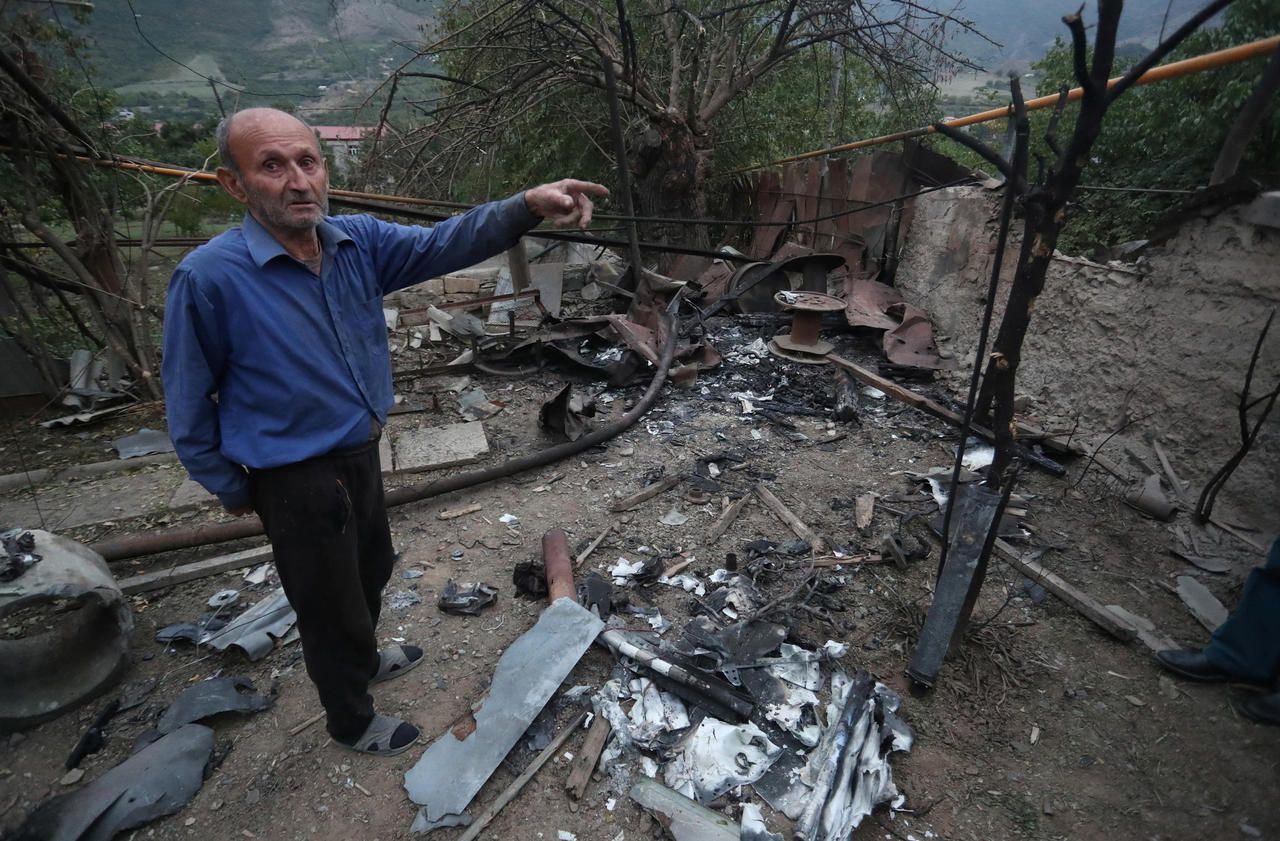Sunday morning at dawn, the Azeri armed forces went on the offensive in the mountainous region of Nagorno-Karabakh, facing the Armenian army, entrenched in its positions.
The fighting has continued since, redoubling in violence, and more than 70 soldiers from both sides have already lost their lives in just over 24 hours.
The Azeri army has only advanced a few kilometers in enemy territory for the moment, but deplores the loss of at least one helicopter and several armored vehicles.
In response to the offensive, the Armenian government declared martial law on Sunday evening, as well as general mobilization, calling on all men of fighting age to join the army.
What objective are the Azeri authorities pursuing?
Their goal is clear: to reclaim the territory lost as a result of the 1994 peace agreement, which ended the war between Armenia and Azerbaijan.
At the end of the 1980s, when the USSR was on the verge of imploding, the population of Nagorno-Karabakh, overwhelmingly Armenian, demanded its independence from Azerbaijan.
But the Baku authorities refuse secession, and engage in a war against neighboring Armenia which supports the secessionists.
After six years of bloody fighting that caused the death of more than 30,000 people, a ceasefire was finally signed in 1994, which benefited Armenia by allowing its army to occupy part of Nagorno-Karabakh.
Since then, Armenians and Azeris face each other on either side of the border, a frequent scene of skirmishes between the two camps.
How could the situation degenerate in the space of a weekend?
For researcher Gaïdz Minassian, professor at Sciences Po and specialist in the Caucasus, these clashes are the consequence of renewed tension in the region since the beginning of the summer.
In July, clashes broke out briefly, causing the death of around 20 soldiers on both sides.
Although the tension had dropped somewhat during the month of August, this did not prevent an upsurge in border incidents from the beginning of September, resulting in the current situation.
What role does Erdogan's Turkey play?
However, according to Gaïdz Minassian, the outbreak of large-scale fighting is also explained by the growing influence of Turkey, which has become Azerbaijan's main ally: “After the interventions in Syria and Libya, the Turks want to open a third front in the Caucasus to extend their influence.
Their strategy is simple: degrade the local situation in order to advance their pawns and weigh in the regional game, ”he explains.
Turkish military aid to the Azeri army has reportedly increased considerably in recent months, with the presence of Turkish instructors tasked with training and advising the Baku military, as well as the delivery of sophisticated equipment to challenge the military. Armenian army.
In addition, various reliable sources, including the Syrian Human Rights Organization, indicated the presence on the front line of Syrian mercenaries sent by Turkey to Azerbaijan.
These fighters, from rebel Syrian militias, are funded by the Turkish authorities.
While the situation is now calmer in Syria, President Erdogan employs them as a mercenary to defend his interests in Libya, and now in the Caucasus.
Does Russia support Armenia?
Faced with an Azeri army boosted by Turkish support, the Armenians can only count on their determination and their unity to push back the adversary.
If Armenia is historically closely linked to Russia, it seems that President Putin is reluctant to show them real support.
The Russian authorities thus simply called on the two belligerents this weekend to agree to sign an “immediate ceasefire”.
For Gaïdz Minassian, "Russia seeks to stabilize the region without choosing a camp, while making Turkey understand that it will not allow militias with jihadist tendencies to gain a foothold in the Caucasus".
Clearly, the Russians have every interest in preserving peace in the region, and above all fear the importation into Azerbaijan of armed Islamist groups by Turkey.
What does France say?
However, Armenia intends to defend its positions and not give in to its enemies: “For the Armenians, it is a war of survival, they have no other choice.
Nagorno-Karabakh is Sparta, the population is conditioned to defend the homeland to the end, ”adds Gaïdz Minassian.
"I am afraid for my family and my friends there, but I remain confident, our people have seen others, we will be able to resist", assures Paul Mahboubian.
Newsletter - Most of the news
Every morning, the news seen by Le Parisien
I'm registering
Your email address is collected by Le Parisien to enable you to receive our news and commercial offers.
Learn more
He is also counting on France to come to the aid of the Armenians: “France has a very close link with Armenia, and we have a common hostility towards Erdogan. I am convinced that President Macron will not let Armenia down, ”he adds. For the moment, the French authorities remain cautious, even if Emmanuel Macron expressed his deep concern on Sunday, and called on the belligerents to a ceasefire "in respect of international law", while recalling "the proximity that maintains France with the Armenian people ”.

